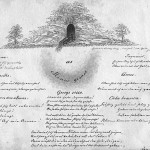May 2016
Vivian Mannheimer / HCS-Manguinhos blog
HCS-Manguinhos was recently awarded a Wellcome Trust grant to support the journal’s internationalisation strategy. According to Dr João Rangel de Almeida, Humanities and Social Sciences Portfolio Development Manager at the Wellcome Trust, this grant aims to solidify Manguinhos as a Latin American hub for the history of medicine.
“As a Global-South voice, Manguinhos is an exciting project that will bring epistemic diversity to the already vibrant medical humanities research ecosystem in Brazil. Under the leadership of André Felipe Cândido da Silva, Marcos Cueto and Roberta Cardoso Cerqueira, Manguinhos has designed an ambitious 4-year plan underpinned by a commitment to quality,” he said.
We talked with Dr João Rangel de Almeida, Humanities and Social Sciences Portfolio Development Manager at the Wellcome Trust about his work and the type of project funded by Wellcome within the fields of medical humanities and social sciences.

Dr João Rangel de Almeida, Humanities and Social Sciences Portfolio Development Manager at the Wellcome Trust.
What is the importance of humanities and social sciences in contemporary medical practice and public health initiatives?
Humanities and Social Sciences are a crucial component to understanding and improving health. At the Wellcome Trust, it is not enough to support drug and vaccine development in a vacuum. If we don’t understand to social context of health and disease, medical practices and technologies are likely to fail. Recent Ebola outbreaks are a good example: initial epidemic control efforts did not achieve the expected goals until there was a clear understanding of burial practices among the affected communities.
Wellcome believes that it is crucial to understand the social context of health and disease. For this reason, we support researchers working in a multitude of projects across cultures and chronologies. The Wellcome Trust funds empirical and theoretical works that spans from bio-archaeology to contemporary bioethical global issues. We need multitude of perspectives to improve health.
What do you expect as “public engagement” in the research proposals you review?
Public engagement is a critical component of any large project supported by Wellcome. We see public engagement as a fruitful collaboration between researchers and publics. On the one hand, publics shape research agendas and findings, on the other hand, by engaging with research, publics explore new ways of understanding medical realities. This allows the emergence of critical citizens that are better equipped to engage in medical practice and to have a voice. The Trust aims to support a public engagement model that goes beyond the traditional one-off result dissemination event. We seek to fund public engagement programmes that identify different audiences and develop actions to each different public during the course of large awards.
Can you provide examples of research projects that the Humanities and Social Science Division supports in low-and-middle-income countries?
At Wellcome, we use Low-and-Middle-Income Country (LMIC) as an eligibility criterion. Presently, the Humanities and Socials Science Division can make grants in the United Kingdom, Ireland and any LMIC. Researcher based at research institutions in these areas can submit applications to our seven funding schemes. In the process of grant-making, proposals are assessed according to set criteria and our Committees do not take into consideration the countries from where applications are launched.
In contrast, we pay close attention to the host institution and scrutinise the research environment to evaluate the match between the proposed research programme and the existing research support available to the investigating team. Thus, we don’t have a specific LMIC agenda. Our goal is to support the best researchers around the world and they may be located in Brazil, South Africa, the United Kingdom or India. Wellcome supports visionary research in the humanities and social sciences that address any aspect of human or animal health.
A few examples. Dr Jantina De Vries (University of Cape Town) received a Small Grant to develop a framework for best practice in genomics and biobanking research in Africa while Dr Ricardo Ventura Santos (Fundação Oswaldo Cruz) convened a workshop on racial conceptions in the twentieth-century Portuguese-speaking Global South. In South Africa, Dr Jo Vearey (University of Witwatersrand) received a three-year Investigator Award to look at the politics and economics of population migration and the prevalence of communicable diseases in the Southern Africa Development Community. From organising workshops to conducting large-scale research programmes, Wellcome offers a multitude of schemes that funds research communities around the world.
Is the Wellcome Trust looking for specific topics of research?
The Wellcome Trust Medical Humanities and Social Science Division does not have a research agenda per se. Wellcome looks for visionary ideas. We support research that can be conceptual or applied, normative or empirical. It can be grounded in the methodologies of just one discipline or located at the intersection of many. We fund research programmes that will have an immediate or long-term impact and will contribute to our mission of improving health.






